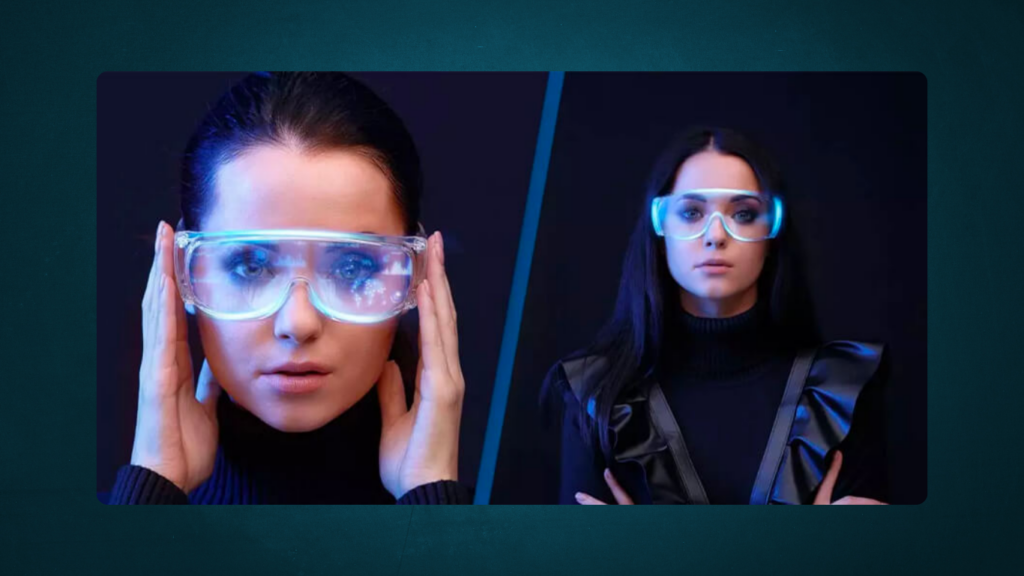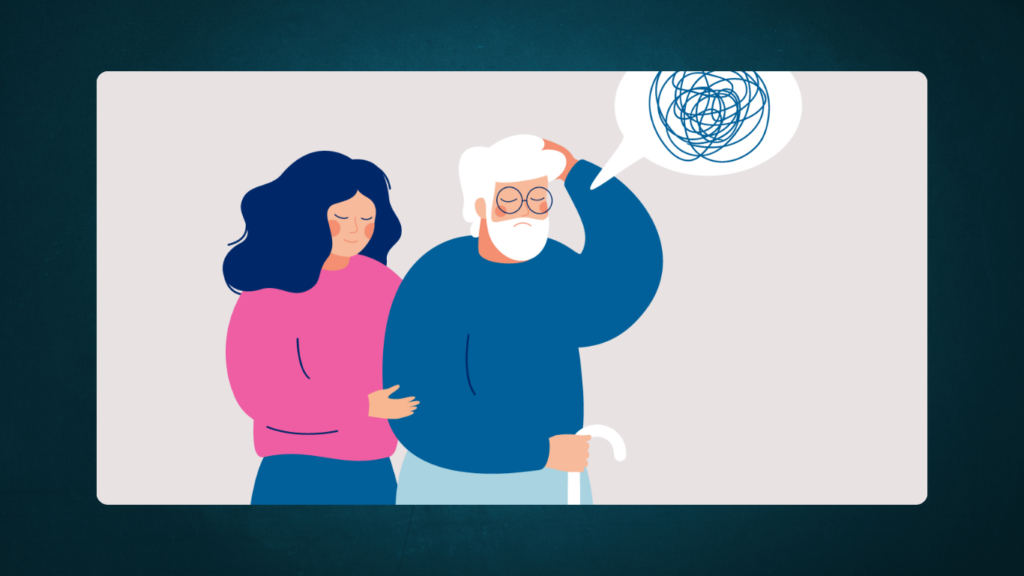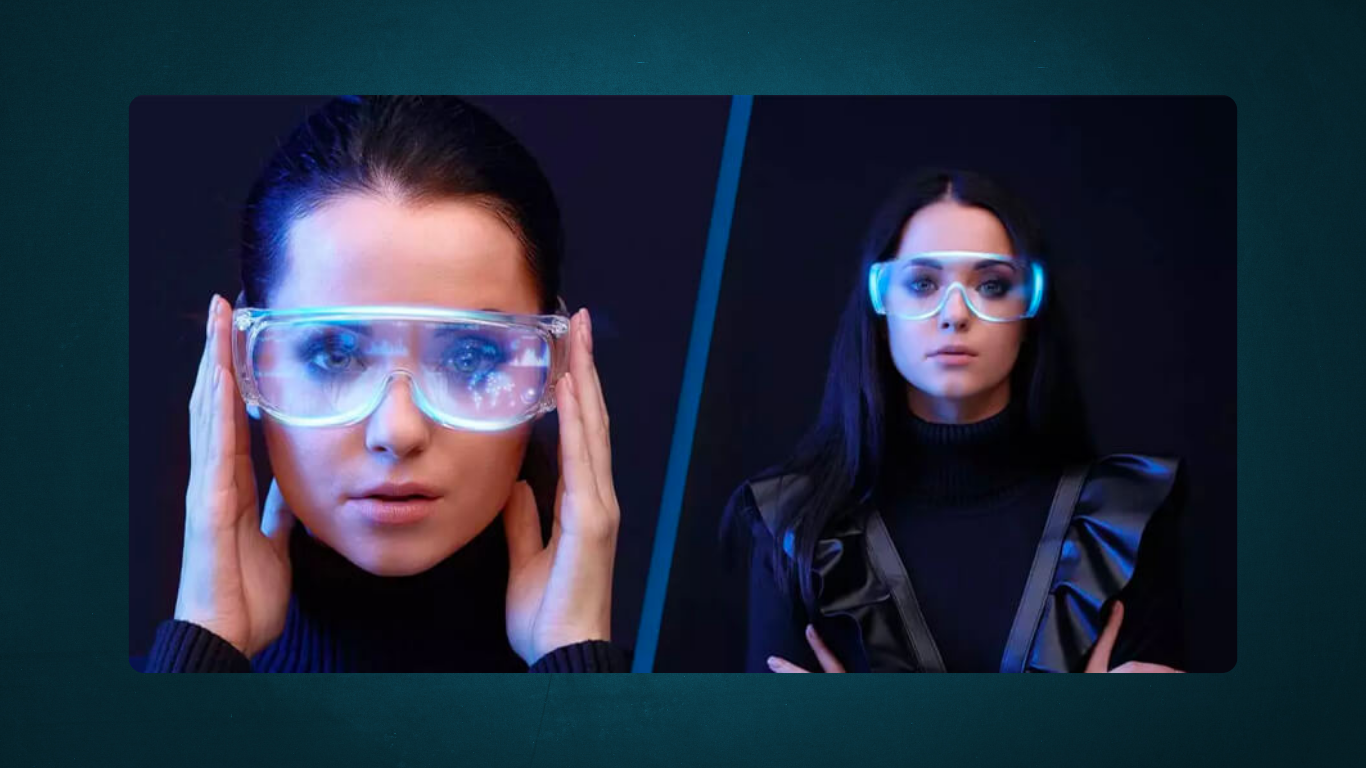With their thick plastic frames and wide arms, these glasses might remind you of 1990s 3D cinema specs, but they are anything but retro. In fact, they represent a cutting-edge leap in technology designed to assist people living with dementia. Among five finalists for the £1 million Longitude Prize for Dementia, these AI-powered glasses aim to help individuals live more independently by transforming how they interact with everyday objects.

Once on, the glasses overlay a digital display onto the real world, allowing the wearer to direct a floating blue target at objects. The system does more than identify items like kitchen appliances—it offers step-by-step instructions on how to use them, learning from the user’s interactions to become even more personalized over time.
But that’s not all. These glasses can record and play back memories associated with objects. With built-in microphones and speakers, and a gentle voice with a Scottish accent as the guide, the wearer can relive significant moments linked to those items, enhancing memory recall.
Szczepan Orlins, director at Animorph, the company behind the glasses, explains: “The idea is simple—you look around, and the assistant guides you. We’re moving past complex interfaces and focusing on natural behaviors to make technology feel more intuitive.”
Though still in development, the glasses show immense promise, despite some current limitations like their weight and sensitivity to background noise. Kate Lee, chief executive of the Alzheimer’s Society, which is co-funding the prize with Innovate UK, underscores the potential: “AI opens up new possibilities for keeping people with dementia active and in control of their routines. Technology like this can help them stay in their homes longer, with more autonomy.”
These glasses are just one of five game-changing innovations in the running for the prize, each of which has received an additional £300,000 in funding to continue their development, with the overall winner set to be announced in 2026.
Two other finalists have also created wearable devices with a focus on aiding dementia patients. One of them applies technology from football pitch sensors to predict falls before they happen, while the other monitors users’ daily habits and provides timely prompts to help them stay on track. If a task is missed, caregivers are automatically alerted.
Another project introduces a hybrid home assistance device that looks like a traditional telephone but includes a screen for video calls and other helpful functions, making it easier for users to stay connected with loved ones and caregivers.
Meanwhile, Supersense Technologies has taken a different approach with their privacy-first monitoring system, which uses radar technology instead of cameras or microphones. Resembling a Freeview box, the system tracks movements throughout a home, learning patterns to identify when something unusual happens. Dr. Matt Ash, co-founder and chief technology officer at Supersense, highlights the system’s potential: “Our technology allows families to see when behaviors change, so they can adjust care at the right time. It even sends reassuring updates like ‘Mum’s up and about, and the heating is on.’”

All five finalists have worked closely with individuals living with dementia, ensuring their technologies address real-world needs. “We want to develop solutions that are genuinely useful,” says Ash. “These innovations are rooted in real problems and practical solutions.”
Tris Dyson, managing director at Challenge Works, which oversees the Longitude Prize, sees this competition as a stepping stone to a future filled with AI-powered technologies that will continue to revolutionize dementia care. “This is just the start,” he says. “Where these finalists lead, others will follow, opening up a world of possibilities for AI in this space.”
As the finalists push forward, the hope is that these AI-driven tools will empower people with dementia to maintain their independence, stay connected with their families, and enhance their daily lives in ways that were once thought impossible.

Subtly charming pop culture geek. Amateur analyst. Freelance tv buff. Coffee lover
